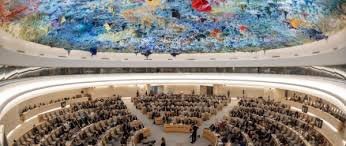International praise for Saudi Arabia’s Human Rights progress at UNHRC

Saudi Arabia’s human rights report, presented at the 45th session of the UN Human Rights Council in Geneva, has received commendation from nations around the globe.
This report, constituting the fourth review for Saudi Arabia since 2018 under the Universal Periodic Review (UPR) mechanism, has sparked international recognition for the Kingdom’s strides in human rights. Countries praised Saudi Arabia’s advancements, attributing much of it to the ambitious Vision 2030 developmental plan.
The Vision 2030 initiative has played a pivotal role in ushering in comprehensive reforms, impacting legislation and regulations with a focus on fundamental rights, women’s empowerment, child protection, educational development, and human rights amendments. During the review session, the United States lauded Saudi Arabia’s modernization efforts in both the economic and societal spheres. The United Kingdom specifically acknowledged progress in women’s rights, crediting social and legal reforms initiated under Vision 2030.
A consortium of nations, including Belgium, Argentina, Austria, Ukraine, and China, echoed the sentiment of commendation, highlighting Saudi Arabia’s commitment to addressing human rights challenges. Specific areas of recognition included efforts to combat trafficking and child labor, legislative reforms, and support for international peace initiatives.
Further affirming this positive reception, individual nations shared nuanced perspectives. Croatia commended Vision 2030’s legislative reforms, especially in preventing child labor and workplace discrimination, while France applauded Saudi Arabia’s large-scale human rights endeavors. Cyprus, Germany, Finland, and Italy acknowledged strides in women’s rights and protections for foreign workers.
Countries like Iran, Ireland, Japan, the Netherlands, and the Russian Federation recognized various advancements, ranging from family law issuance and job mobility services for foreign workers to educational opportunities for women, disability rights, and gender pay equality. Mexico, Portugal, and Spain welcomed specific reforms like the Travel Documents Law and the Civil Status Law, emphasizing the empowerment of women and workers. Sweden appreciated progress in economic and social rights, particularly for women and girls.
The Universal Periodic Review (UPR) mechanism, a key component of the UN Human Rights Council, plays a crucial role in reviewing member states’ human rights obligations every four years. Established in 2006 by the UN General Assembly, the UPR serves as a mechanism to encourage countries to promote and protect human rights on a domestic level.







